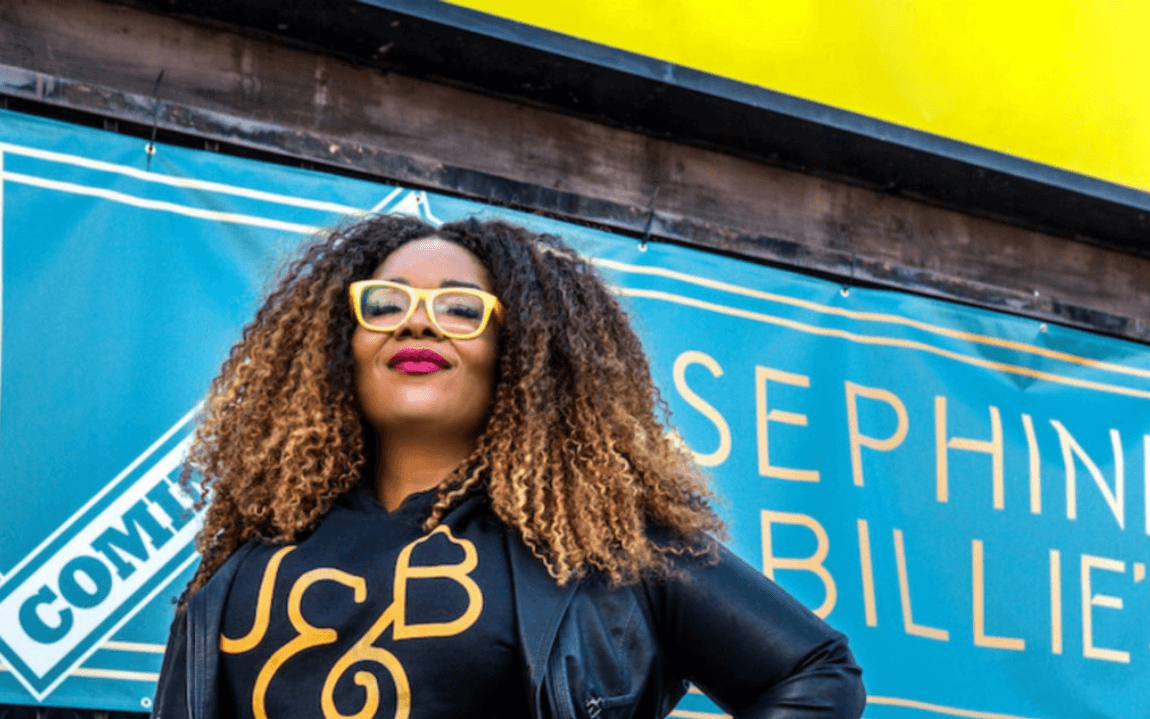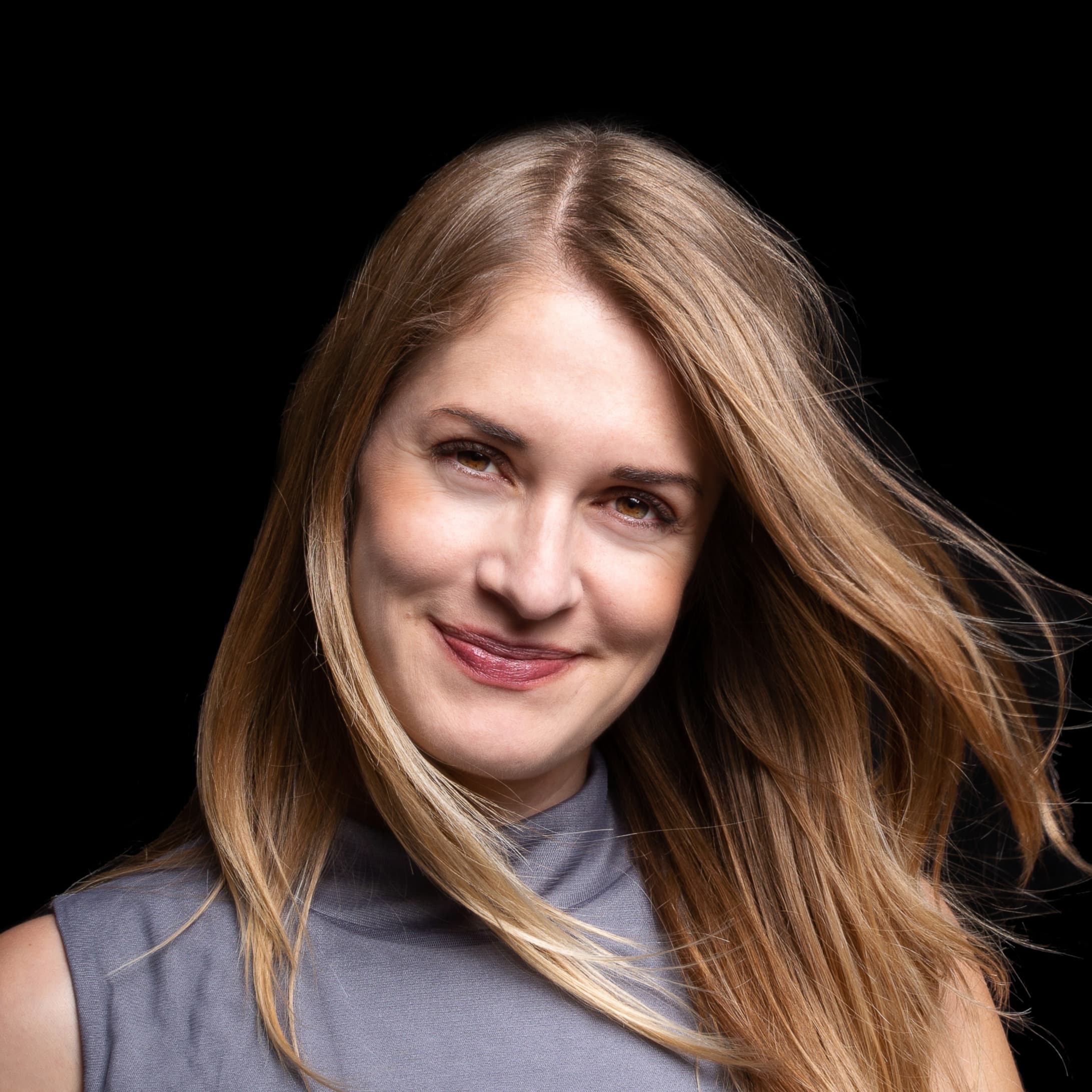In this Q&A, Whitney Beatty shares her experience as the CEO of Josephine & Billie's, the first dispensary in the country to focus on women of color.
"The dispensary is named after Josephine Baker and Billie Holiday, two women of color who were persecuted for their cannabis consumption, and yet they used their art to fight against injsutice, they rejected the mainstream and they wrote their own rules all while holding the door open for other women who came after them, and for us, that is Goals AF," says CEO Whitney Beatty. "That's the ethos that we build ourselves after. We intend to provide plant medicine to the community at large but also to focus on education in everything that we do, from the signage on the walls to the way we talk to our customer base."
Meadow commissioned this interview to hear Whitney's story getting her new South Los Angeles dispensary up and running. Listen to the 10 minute interview or continue to read the transcript, below.
Meadow: Can you talk about some of the struggles or surprises in launching a business, getting it off the ground, what have you run into?
Whitney: What haven't I run into? The struggles and challenges are immense in launching a business in the cannabis space. From top to bottom, left to right, even more so when you're talking about launching a social equity business, which Josephine & Billie's is. We are a social equity licensee and we are woman of color-led. I am the social equity license holder for Josephine & Billie's. What we know for sure within the space is that money moves things within the cannabis space. What we know for sure is that access to capital is very difficult. It's one of the biggest barriers to entry out there. The ways to access capital within the cannabis industry is very limited. You don't have the ability to get a bank loan. The SBAs not going to give you a loan. You can't go to Bank of America and go 'can I get a loan for my cannabis business?' It's still federally illegal so you cannot do that. You're stuck in a position where you get money from angel investors and you get money from VCs.
Angel investors tend to invest in people who look like them, remind them of themselves, and who are in their network. And when you're talking about people of color, they tend not to have people with high net worth within their network. It's just a simple numbers fact. Typical Black family has $5,000 dollars I think it was most recently of net worth; you just don't have those sort of people within your network. So now you're looking more at VC money; VCs are giving 2% of their dollars to women-led business and .0006% to businesses led by women of color. So there's that. And that's just data points. You can always argue with thoughts but it's very hard to argue with data, and the data shows it's very hard to start a business within the space when it's cash heavy. And everyone knows that licensed businesses are cash-heavy; to start a dispensary you are looking at $1 million or $2 to get off the ground. So you have a situation where you're saying, you need to be making less than X amount of money, and yet you need to start a business that requires Z amount of money. And you need the ability to make it from X to Z; that's why this is difficult.
Meadow: What's it been like to deal with these challenges, push through them, and be able to put out this brand that resonates with people? What's been rewarding about your pursuit of this company?

Whitney: I think what's been most rewarding is the community at large. We built this company because we saw a need. Me and my partner, Ebony Anderson, as we came together, we built what we really wanted to see within the community. And as we started putting it together, to see the community come out to say 'We've been waiting for this, we've been hoping for this, we're cheering you guys on.' To see the community support has definitely encouraged us when times were hard, or money was scarce. When you continually, constantly running up against concrete walls, it becomes very hard when you're pushing a boulder up hill. I applied for this license back in 2019, so it's been definitely a long path and I've been obviously working on this prior to that application period. So the support of the community at large and the encouragement from women of color who have been waiting to be recognized within the space and have a home within the space, and to see their needs met within the space, has been incredibly encouraging and important to us.
"Meadow has been a great partner to work with thus far. They’ve been incredibly encouraging, supportive, they've been a flexible brand partner and I think they have shown that they have similar values to ours, which is incredibly important to a brand like Josephine & Billie’s."
- Whitney Beatty, CEO, Josephine & Billie's
Meadow: Can you dive into more what those values are and how you've been able to manifest them?
Whitney: We value diversity and inclusion in the marketplace. We show that across the board in the way that we do business, in the way that we talk to our customer base, the way that we stock goods, and the businesses we choose to do business with. We see also Meadow’s commitment to supporting diversity and inclusion within the cannabis industry at large.
Meadow: What are you looking forward to in the coming months, years of your business once you've established your foundation?
Whitney: I'm excited about the growth of Josephine & Billie's nationwide. The Los Angeles store is our flagship and I'm super excited to get that off the ground and start building this community of women of color but I'm excited to see that grow, to be able to open additional locations, to see us franchise out and be able to grow that brand and to see this community really see that they have a home within the space.
Meadow: Finally, taking into account your experiences in the industry, what would you like to say to those listening right now who are in the industry as well about your experiences?
Whitney: My advice for other people within the industry, especially women of color who are interested in the space or interested in rolling brands within the space is even though it's not easy, I think that it's still worth doing. And I encourage them to come into the space. It's never going to be any smaller than it is today. The barriers of entry grow on a daily basis, but it is a worthwhile endeavor. There's opportunities abound and I encourage them to really look at how to transfer the skill sets they already have into this industry in a meaningful way. I have really learned so much from being able to transfer my background in the entertainment industry into the cannabis field and I encourage other people to be able to work in this space as well. Communities of color have been disproportionately disenfranchised by the war on drugs for years and it's important that we have inclusion within the space as it grows to be, you, know—it's slated to be a $70 billion dollar space. I want to see diversity within it.
Meadow: For those who want to support your company, what can they do right now?
Whitney: If you like Josephine & Billie's and you want to learn more about what we're doing, please come check us out at josephineandbillies.com. You can follow us on Instagram at @josephineandbillies and you can follow us on Twitter at @billiesentme and you can always come and check us out at 1535 West Martin Luther King Jr Blvd. in beautiful South Los Angeles.


